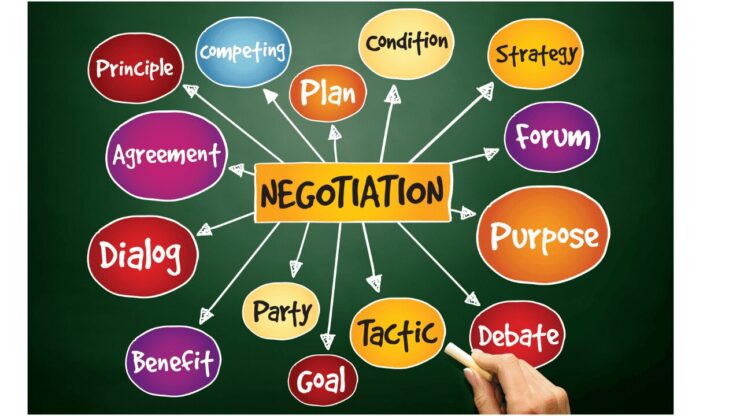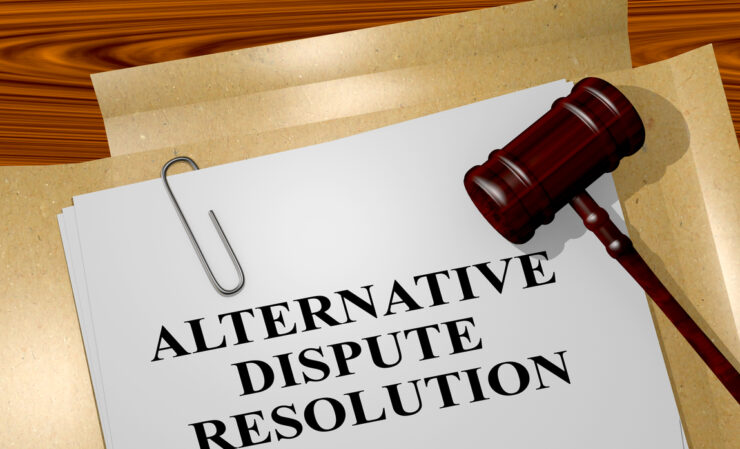As a business owner, commercial disputes are inevitable. Whether it’s a disagreement with a supplier or an issue with a client, these conflicts can create significant disruptions to your operations and potentially harm your reputation. That’s why knowing how to navigate these situations is critical for any successful entrepreneur.
Seeking Professional Legal Counsel and Assistance
In the ever-evolving, intricate realm of commercial business, legal disputes can arise as swiftly as a summer storm, transforming a once-clear sky into a tempest of uncertainty. It’s at this moment that the inestimable value of professional legal counsel surfaces, acting as a guide through the storm. Engaging with a lawyer or a legal team possessing relevant expertise in commercial law such as summitlawllp.co.uk should be the first step in managing commercial disputes. They can help discern the legalities, understand the nature of the dispute, and devise strategies to manage the conflict effectively.

One might argue that ‘forewarned is forearmed,’ and this holds unequivocally true in the context of business disputes. Professional legal counsel can ensure you are aware of potential liabilities, understand the risk factors, and are prepared with a robust strategy to handle disputes. They are your vanguard in the maze of commercial laws, keeping your interests at the forefront and striving to protect you from potential pitfalls.
Moreover, professional legal advisors bring a third-party perspective to your situation, offering advice free from the emotional entanglements that can cloud judgment. Their professional stance allows for more objective analysis, steering the case toward resolution while preventing personal feelings from stalling the process. Undoubtedly, securing proficient legal advice is a linchpin to successfully navigating commercial disputes.
Effective Communication and Negotiation Strategies

Communication is the lifeblood of any relationship, including business. When it comes to commercial disputes, effective communication can mean the difference between quick resolution and protracted litigation. Clear, respectful dialogue can help to illuminate misunderstandings, allowing all parties to gain a comprehensive understanding of the issues at stake.
Negotiation, a subset of communication, is also a powerful tool in managing commercial disputes. The art of negotiation lies in seeking a win-win solution that respects the interests of all parties involved. Employing principled negotiation strategies, focusing on the problem rather than the people, and brainstorming creative solutions can lead to amicable and satisfactory resolutions.
However, it’s worth noting that effective communication and negotiation strategies aren’t always about talking. Listening is equally crucial. Understanding the other party’s perspectives, acknowledging their concerns, and responding empathetically can often help to defuse tension, making the path to resolution smoother.
Choosing the Right Dispute Resolution Mechanism

The choice of dispute resolution mechanism can significantly impact the resolution process’s speed, cost, and outcome. Understanding the unique characteristics of each method is paramount in making an informed decision. Litigation, arbitration, and mediation are the most commonly used mechanisms, each with its pros and cons.
Litigation is a formal process involving courts and judges. While it may provide a definitive resolution, it can also be time-consuming, expensive, and public. Arbitration, on the other hand, is a more private process, generally quicker and less formal, but it can still be quite costly. Lastly, mediation is the most informal and least confrontational, focusing on finding a mutually agreeable solution. However, its success largely hinges on the parties’ willingness to compromise.
Each dispute will require a different approach, and the right choice depends on numerous factors, including the nature of the dispute, the relationship between the parties, time constraints, and financial implications. A seasoned legal advisor can provide valuable insights in this selection process, ensuring the chosen method aligns with your business objectives.
Key Considerations in Mediation and Arbitration

While litigation often stands as the last resort, mediation, and arbitration have gained traction as effective means to resolve commercial disputes. These methods offer advantages such as privacy, speed, and more control over the process. However, understanding their nuances is essential to leveraging their full potential.
Mediation revolves around facilitating a discussion between disputing parties, led by a neutral mediator. This method focuses on rebuilding relationships and reaching mutually agreeable solutions. Parties need to approach it with an open mind, a willingness to listen, and the readiness to compromise. The process’s non-binding nature often provides a safe space for dialogue and negotiation.
Arbitration, conversely, is a more formal process where a neutral arbitrator (or panel of arbitrators) makes a binding decision after hearing both sides. It’s crucial to understand that once an arbitrator’s decision is made, it’s generally final with limited grounds for appeal. Parties need to prepare meticulously, presenting their case clearly and comprehensively. While arbitration is more formal than mediation, it still offers more flexibility than litigation.
Enforcing Contracts and Upholding Legal Rights

The enforcement of contracts and upholding legal rights are critical components of managing commercial disputes. Contracts lay the foundation of commercial relationships, and their enforcement ensures that parties fulfill their obligations as agreed. When disputes arise, it’s essential to comprehend the contractual rights and obligations to protect your interests effectively.
Additionally, upholding legal rights goes beyond contracts. It involves understanding the rights conferred by laws, such as those related to intellectual property, trade secrets, and competition. Violations of these rights often lead to disputes, and understanding these rights can help you protect your interests and seek appropriate remedies.
Remember, while enforcing contracts and upholding rights, it’s crucial to maintain a balance. Adopting an aggressive approach may lead to a breakdown in business relationships, while a passive approach may set a precedent that can be exploited. Striking the right balance can ensure your rights are protected while maintaining healthy business relationships.
Managing Legal Costs and Allocating Expenses
Costs can be divided into direct costs, like attorney fees and court fees, and indirect costs, like time spent away from business operations. Being aware of both types of costs can provide a clearer picture of the financial impact of a dispute. Also, insurance policies, like legal expense insurance, can help manage these costs.
Lastly, the allocation of expenses between parties can be a contentious issue. Negotiating this aspect early, ideally at the contract drafting stage, can help manage expectations and reduce potential friction later. Clear clauses regarding the allocation of expenses in the event of a dispute can make the resolution process smoother.
Concluding Remarks
Navigating commercial disputes requires a strategic blend of legal acumen, effective communication, prudent negotiation, and astute financial management. With the right preparation and a robust legal strategy, businesses can transform these disputes from potential pitfalls into opportunities for growth and improvement. Remember, it’s not about avoiding all disputes, but about being well-equipped to manage them when they arise.

